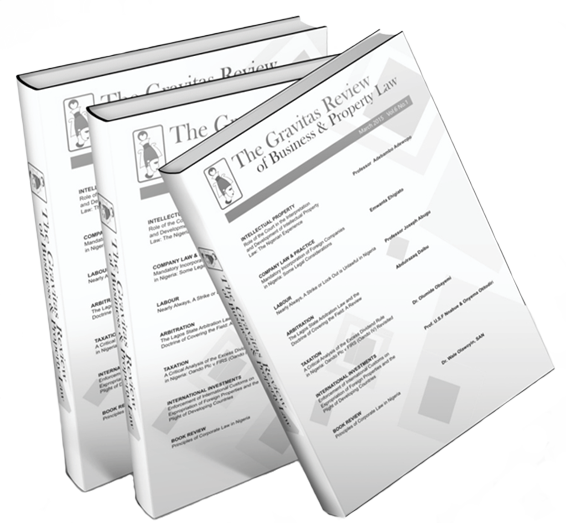
Why You need to write for us
- Your article will be peer reviewed Your article will be intellectually validated.
- Your article will be open to view online.
- Your article will be part of a repository of informed business law materials, attracting citation in academic, professional and judicial circles worldwide
Note to Contributors
Manuscripts should have a cover page containing the name, address, e-mail address, telephone number(s) and brief personal details of the author.
There shall be provided Abstract of not more than 250 words.
Contributions may include any of the following:
- Articles (max: 10,000 words)
- Lectures, Addresses and Conference Papers
- Book Review
- Case Review
- Statute Review
- Review of Practice and Procedure
Review of Contributions
All contributions will be reviewed by the General Editors as to their suitability for inclusion in the journal and be subject to appropriate peer review. Contributors may be asked to revise their contributions before final acceptance and will have an opportunity to review proofs before publication. However, no major changes can be included at proof stage, and corrections must be limited to typographical errors only.
Other Requirements
Contributions should conform to the guidelines as to style and format set out below.
Footnotes are encouraged, but should not be used for making subsidiary arguments, which should be handled in the main body of the article.
General format: Contributions should be submitted as an email attachment, in MSWord. Prepare your typescript text using a word-processing package, ideally Microsoft Word (save in .doc or .rtf format). Please do not submit text as a PDF file. Typescripts should be double-spaced, including text, tables, legends and footnotes. Number each page. Type unjustified, hyphenating only compound words. Where possible use Times New Roman for the text font and Symbol for any Greek and special characters. Use the word processing formatting features to indicate Bold, Italic, Greek, Maths, Superscript and Subscript characters. Please avoid using underline: for cases use italic; for emphasis use bold. Clearly identify unusual symbols and Greek letters.
Headings: The use of sub-headings at regular intervals through each article is encouraged, as it makes articles more easily readable. If you need to use more than one level of heading, please use a consistent hierarchy of headings to ensure that the relevant importance of each heading is clear, for example 1. CAPITALS, then a. Bold, then (I) Italics.
Reference format: References should be given in footnotes, identified in the text by Arabic numerals and numbered in the order cited. Complete information should be given for each reference cited.
Citation examples:
Books:
M.D.A Freeman, Lloyd’s Introduction to Jurisprudence (6th edn, Sweet & Maxwell 1994) 379-392
Articles:
Wedderburn W.W., ‘Shareholders’ Rights and the Rule in Foss v Harbottle’ (1957) CLJ 194
Contributions to books:
Ashworth A., ‘Belief, Intent and Criminal Liability’ in J Eekelaar and J Bell (eds), Oxford Essays in Jurisprudence (3rd Series, 1987) 1
Cases:
Abubakri & Ors v Smith & Ors. (1973) 8 NSCC 451; Elufioye & Ors v Ibrahim Halilu & Ors (1993) 6 NWLR (Pt 301) 570
In general, when citing other legal materials, authors should use the approved form that is standard in the jurisdiction in question; where in doubt, use the Oxford Standard for the Citation of Legal Authorities (OSCOLA). Above all, consistency within the article is paramount.
COPYRIGHT
Articles submitted to The Gravitas Review of Business & Property Law should be original contributions and should not be under consideration by any other publication at the same time. If an article is under consideration by another publication at the same time the author should clearly indicate this at the time of submission; if published in The Gravitas Review of Business & Property Law, it cannot be reproduced in whole or substantial part elsewhere (except the author’s personal website or his firm/institution’s repository) without permission from the Editor. The Editor, and the Editorial Board are responsible for the selection and acceptance of articles, but responsibility for errors of fact or law and the opinions expressed in them rests with their authors – who will naturally be constantly subject to refereeing and peer review. Copyright in articles published in the Gravitas Review of Business & Property Law is retained by the journal.
